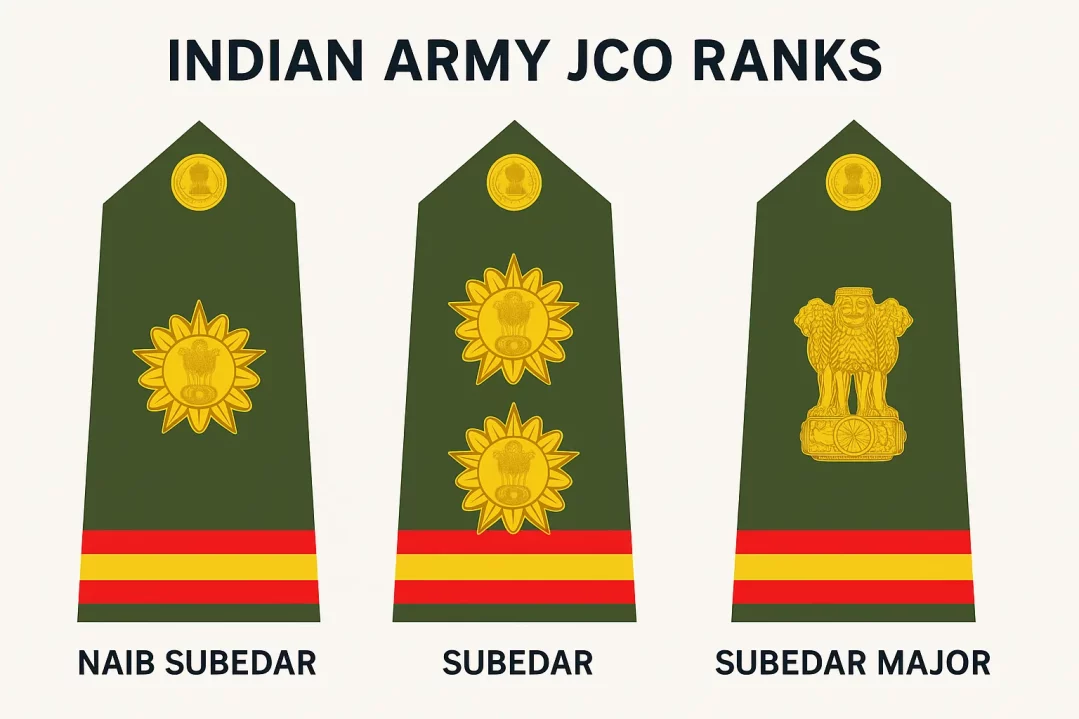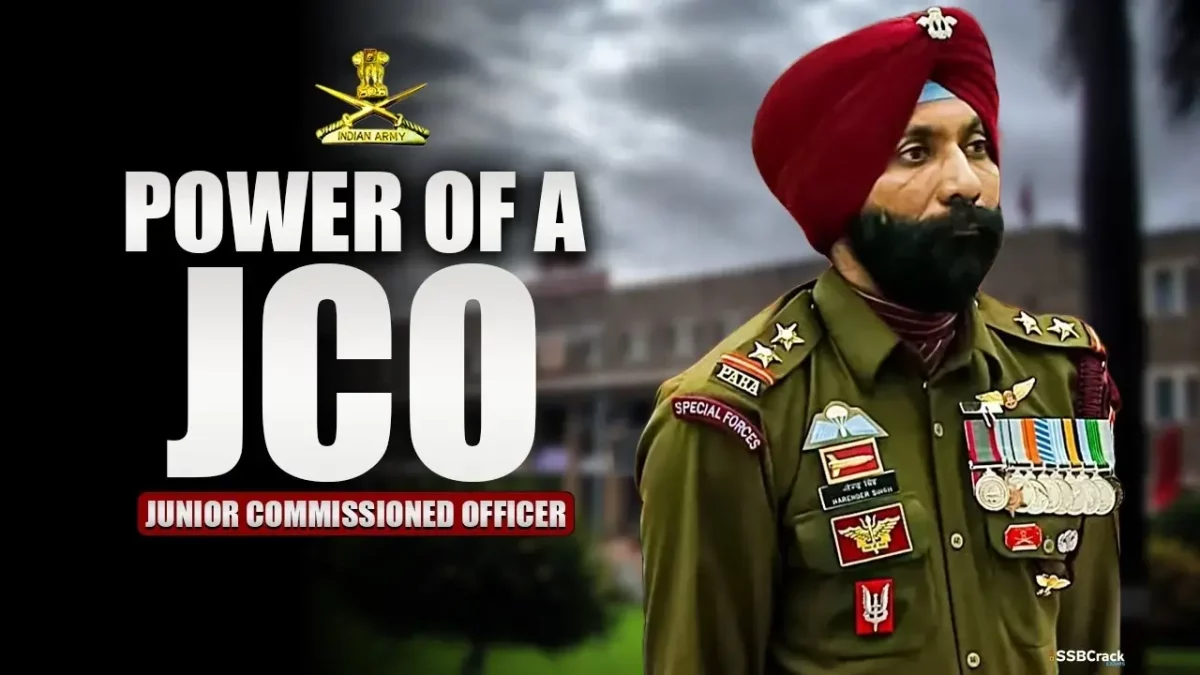Junior Commissioned Officers (JCOs) occupy a critical position within the hierarchical structure of the Indian Army, serving as an essential intermediary between commissioned officers and enlisted personnel. These officers are recognized as gazetted officers, as affirmed by official statements from the Indian Army. Their role is pivotal in maintaining operational efficiency, discipline, and morale, often described as the backbone of the Army due to their ability to bridge command perspectives with ground-level realities. This article examines the ranks, pathways to becoming a JCO, key roles, responsibilities, and inherent powers, providing a comprehensive overview of their contributions to military effectiveness.
Ranks and Hierarchy
JCOs hold ranks that are superior to non-commissioned officers (NCOs) such as Havildar but subordinate to commissioned officers like Lieutenant. In the infantry, the ranks are Naib Subedar (Pay Level 6), Subedar (Pay Level 7), and Subedar Major (Pay Level 8). Equivalent cavalry ranks include Naib Risaldar, Risaldar, and Risaldar Major, maintaining identical pay structures. These positions form a distinct class with additional privileges, including enhanced facilities and recognition within the military framework.
The insignia for these ranks typically feature shoulder epaulettes with national emblems and stripes denoting seniority, as illustrated in standard Indian Army rank charts. Equivalents exist in other branches: in the Indian Navy, they align with Master Chief Petty Officer grades, and in the Indian Air Force, with Master Warrant Officer, Warrant Officer, and Junior Warrant Officer.
Pathways to Becoming a JCO
JCOs are primarily promoted from senior NCO ranks based on merit, seniority, and availability of vacancies. Eligibility criteria generally include Indian citizenship, an age range of 27 to 34 years, and educational qualifications from 10+2 to graduation, varying by specific roles such as Religious Teachers or Catering JCOs. The selection process involves physical fitness tests, medical examinations, written assessments, and merit-based evaluations. Career progression includes mandatory leadership courses, with opportunities for advancement to Subedar Major or honorary commissions like Honorary Lieutenant for exceptional service.

Roles
JCOs fulfill multifaceted roles that enhance unit cohesion and operational readiness. They act as leaders and mentors, exemplifying professionalism to foster discipline and motivation among subordinates. In operational contexts, they contribute to mission planning, providing experiential insights to commissioned officers for strategy development. Additionally, JCOs serve as a communication conduit, ensuring orders are effectively disseminated and feedback is relayed upward. Their deep understanding of troop challenges enables them to maintain morale and facilitate coordination across units.
As the backbone of the Army, JCOs are instrumental in training, offering hands-on guidance to prepare soldiers for duties. They also represent their units in forums, articulating needs and concerns to higher authorities.
Responsibilities
The responsibilities of JCOs encompass administrative, supervisory, and welfare-oriented tasks. They oversee daily activities, including discipline enforcement, welfare monitoring, and grievance resolution to sustain troop morale. Training duties involve conducting physical, weapon, and tactical sessions, assessing needs, and designing programs for skill development. Administratively, JCOs manage records, personnel, inventory, and logistical support, ensuring resource availability.
In ceremonial capacities, they lead parades and regimental events, while in operational settings, they assist in mission execution and logistics coordination. Subedar Majors, in particular, advise commanding officers on soldier welfare, discipline, and morale. Additional duties include maintaining hygienic environments, completing boards of officers, and handling documentation.
Powers
JCOs possess significant authority to fulfill their duties effectively. They hold command over enlisted personnel, issuing orders, assigning tasks, and enforcing discipline within military regulations. Decision-making autonomy is granted in designated areas, drawing on their experience and superior directives. Their influence extends to mentorship, shaping subordinates’ careers through guidance. As unit representatives, they advocate in meetings, addressing concerns to stakeholders. These powers underscore their role in upholding order and achieving mission objectives.
Compensation and Benefits
As of 2025, JCO salaries range from approximately ₹48,584 to over ₹75,000 monthly, inclusive of basic pay, Dearness Allowance (53% of basic pay), House Rent Allowance, and Military Service Pay (₹15,500). Benefits extend to medical facilities, provident funds, pensions, and subsidized canteen access, ensuring financial security.
Conclusion
JCOs embody a blend of leadership, administrative acumen, and operational expertise, making them indispensable to the Indian Army’s success. Their powers enable effective command and decision-making, while their roles and responsibilities ensure unit integrity and preparedness. By understanding the multifaceted contributions of JCOs, one appreciates their enduring impact on military operations and personnel development.













